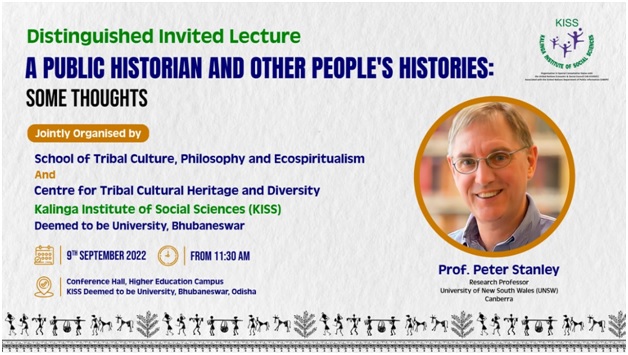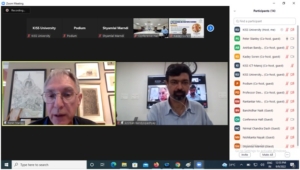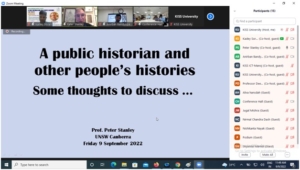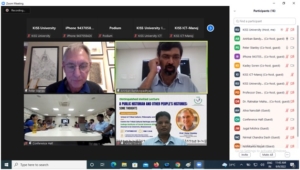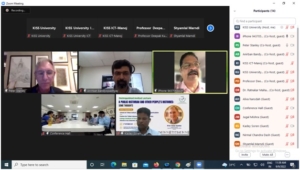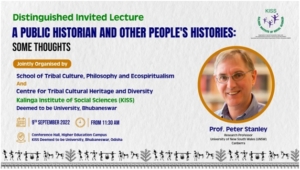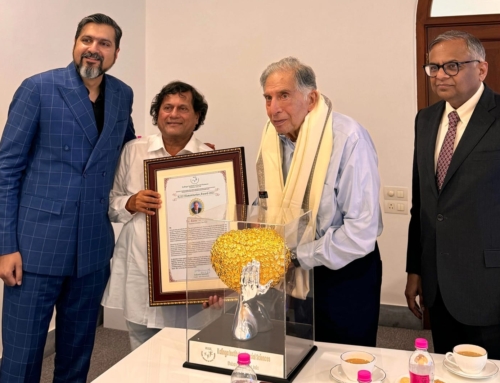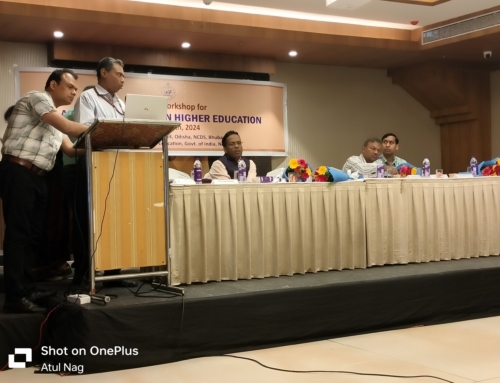Professor Stanley, a distinguished public historian who has recently published a well-received book on the Santhal Hul (rebellion) of 1855, wondered how far it was appropriate for a white historian from Australia to research or write about the history and heritage of a marginal indigenous community in India.
His book narrates the history of the military strategies through which the British authorities suppressed the Santhal Hul of 1855. “Historians should try hard to combine their archival research with the lived experience of their subjects to the extent possible. Public history offers that opportunity and historians should engage with it more often”, he told the audience.
Speaking on the occasion, Professor Deepak Kumar Behera, Vice Chancellor, KISS-DU said that public history is an effective means to lend voice to the marginalized. Commending the visionary leadership of Prof. Achyuta Samanta, Founder, KIIT & KISS, he introduced KISS-DU as the largest university in the world dedicated exclusively to students from indigenous communities.
Professor Stanley specialises in Australian military-social history, but he has also published in British imperial military history, battlefield research, medical history, bushfires and military history of British India. His last book was a history of the experience of the 50,000 British Territorial soldiers who served in India during the Great War. Professor Stanely, who had a thirty three year-long stint at the Australian War Museum prior to joining UNSW in 2013, has been publishing a book a year since 1983, informed Dr. Anirban Bandyopadhyay, Associate Professor, School of Tribal Culture, Philosophy & Eco-spiritualism and Director, Centre of Tribal Cultural Heritage & Diversity
Dr. Sushri Sangita Mohanty, Assistant Professor of Anthropology, KISS-DU; Professor N. C. Dash, Emeritus Professor; Dr. Priyoneel Basu, Director of Research and several students participated in a lively discussion with the speaker after the lecture. Dr. Ratnakar Mohapatra, Dean, School of Tribal Culture, Philosophy & Eco-Spiritualism proposed the vote of thanks. A large number of students and faculty members attended the lecture.

